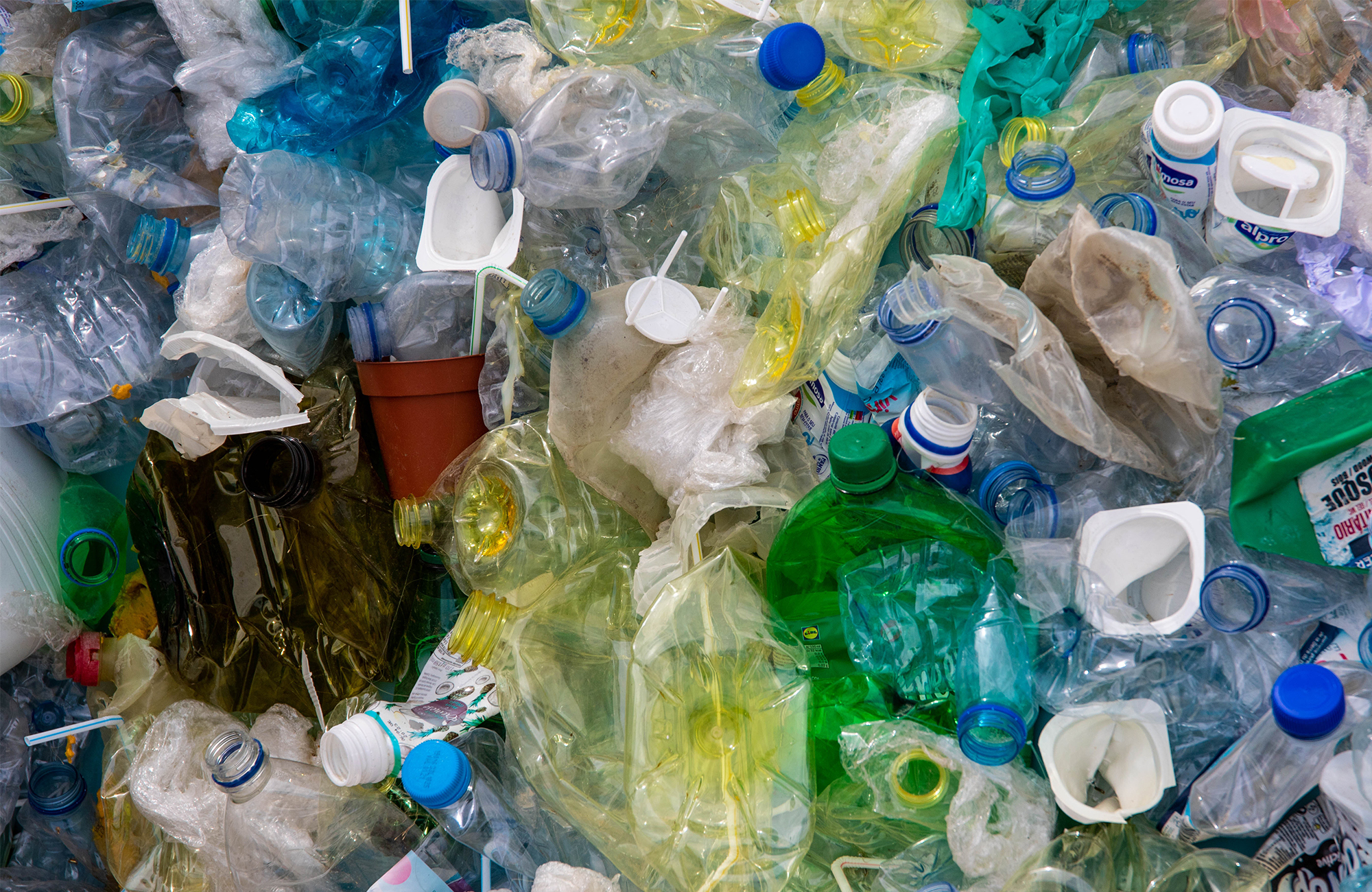

It’s hard to look around and not see it. Maybe if you’re in the middle of the woods, or high up on a mountain. But even then, plastic is everywhere.
Each year, companies produce billions of pounds of plastic waste., and the majority of single-use plastics are produced by just a handful of groups. Still, corporate accountability isn’t always robust. Even in the cases where companies do make commitments to reduce plastic consumption, in actuality, the burden often falls on the consumer, and promises frequently don’t reduce virgin plastic consumption, a new study published Friday in One Earth shows.
“We need to turn off the tap of plastic pollution,” Zoie Diana, author of the study and PhD candidate at Duke University tells PopSci. “The transparency has to start from the companies.”
The team at Duke studied commitments from 974 of the world’s largest companies, including Amazon, ExxonMobil, and Johnson & Johnson, and found that instead of reducing virgin plastic, corporations opted for promoting recycling or lightweighting their packaging. These options are not good solutions for several reasons, Diana says.
Currently, only nine percent of plastic waste is actually recycled globally, and it may be even lower in the US. “And of that nine percent, only ten percent has been recycled more than once in the past 50 years,” Diana says. When we put plastic in the recycling bin, very little of what we intend to recycle actually end up reused. “Recycling just delays plastic disposal,” Diana says.
The other big commitment the researchers observed is lightweighting—where companies make their products or packaging using less plastic. You may have noticed Coca-Cola bottles lining shelves become less heavy or smaller over time. Or, packaging for products found in Walmart stores may have become lighter too. These companies are just some of the groups who have opted to lightweight their products in an attempt to reduce plastic pollution.
[Related: A close look at the Great Pacific Garbage Patch reveals a common culprit]
While making individual bottles less plastic-intensive may sound good in theory, but isn’t as sweet as it sounds. “If you’re producing more and more plastic bottles overall, or reinvesting any cost savings from lightweighting into new products that are made of plastic, then that’s an insufficient response. That’s not going to get us to reduce plastic pollution overall,” Diana says.
Beyond deficient strategies, the researchers also found ambiguity to be a challenge. Although 72 percent of the companies studied did make a commitment to reducing plastic use, their commitments often involved insufficient strategies like these or were too vague to be assessed for progress. “89 percent made at least one commitment that was neither time-bound nor measurable,” Diana says.
On top of this, the majority of companies studied did not link plastic pollution with climate change. Beyond killing wildlife, accumulating in our food, and being linked to cancer and hormone disruption, plastic uses a lot of fossil fuels. Virgin plastic is quite literally made out of fossil fuels—crude oil is heated and distilled to turn into the material. And as fossil fuel use, which is the primary cause of climate change, continues to increase, commitments by companies considering their impacts on climate change are important, Diana says.
But there is hope in the form of legislation, Diana says. The United Nations Environment Assembly is working to have an international plastics treaty in place in 2024, which Diana hopes will work to target virgin plastic production. “I do think we need more emphasis on the ties between plastic pollution and climate change,” she says. “There’s a lot of overlap there. The treaty is definitely making me hopeful and excited.”
